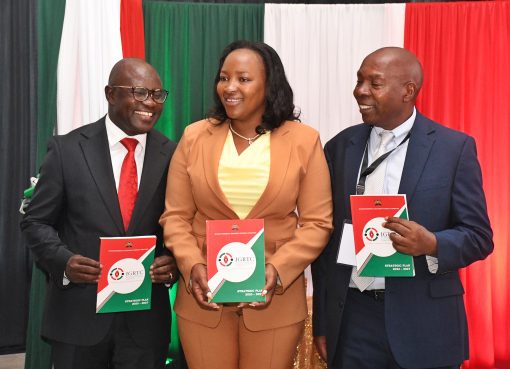Industrialists and entrepreneurs operating in Nakuru County have been asked to ensure they are tax compliant as the government moves to ramp up revenue collection in its race to meet a Sh6 trillion collection target by 2027.
Nakuru County Commissioner Gilbert Kitiyo said the Kenya Revenue Authority (KRA) was committed to ensuring fairness in treatment of all tax-payers and was willing to assist taxpayers comply with all tax legislation.
He asked those whose annual taxable turnover was Sh5 million and above to register for Value Added Tax obligation and charge tax while those whose turnover was below Sh5 million to pay presumptive taxes.
Speaking during a dinner for entrepreneurs and industrialists organized by Echo Network Africa, the County Commissioner explained that unless income was expressly exempted in the tax law, appropriate taxes should be paid.
“The cost of compliance is much lower than the cost of non-compliance and living in fear and risk of potential penalties once caught,” said Kitiyo.
The administrator said KRA was using multi-pronged strategies to net tax evaders and cheats, adding that technology and business intercourses were working for them leaving tax cheats with nowhere to hide under the sun.
“In the current dispensation your customers, your suppliers, your bankers and even online transactions are providers of data that can betray your failure to honor your patriotic obligations,” warned Kitiyo.
Changes in Tax Procedures Act 2015 through the Finance Act 2016 enabled KRA to access electronic data on taxpayers from third parties without seeking a court order.
KRA can now access one’s Kenya Power metering records, bank statements, import records, motor vehicle registration details, water bills and data from the Kenya Civil Aviation Authority (KCAA).
The KRA records indicate that it collects about Sh1.88 trillion in taxes annually, which is slightly above half of what the Treasury budgets for expenditure every year.
By Esther Mwangi and Charlotte Chepkemoi





